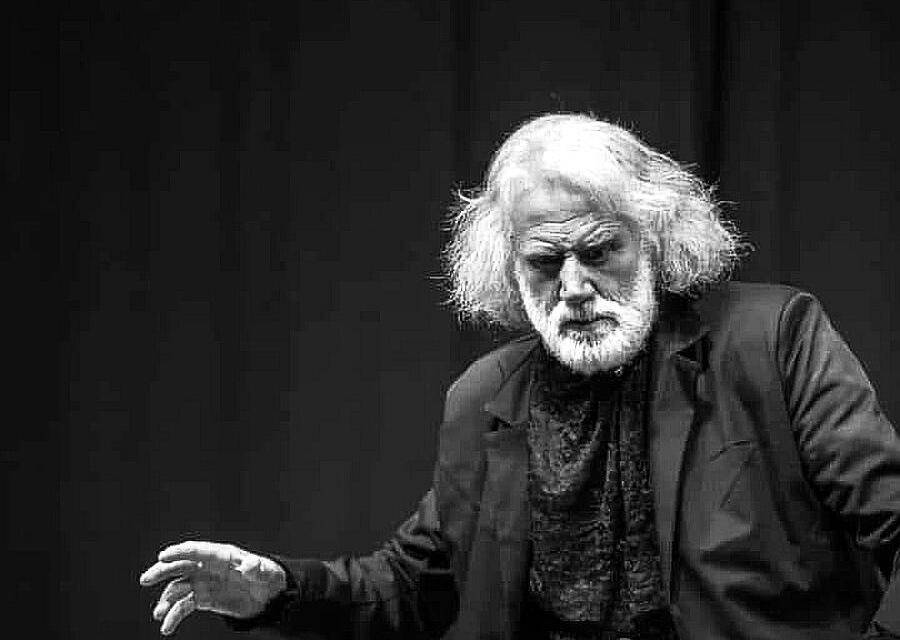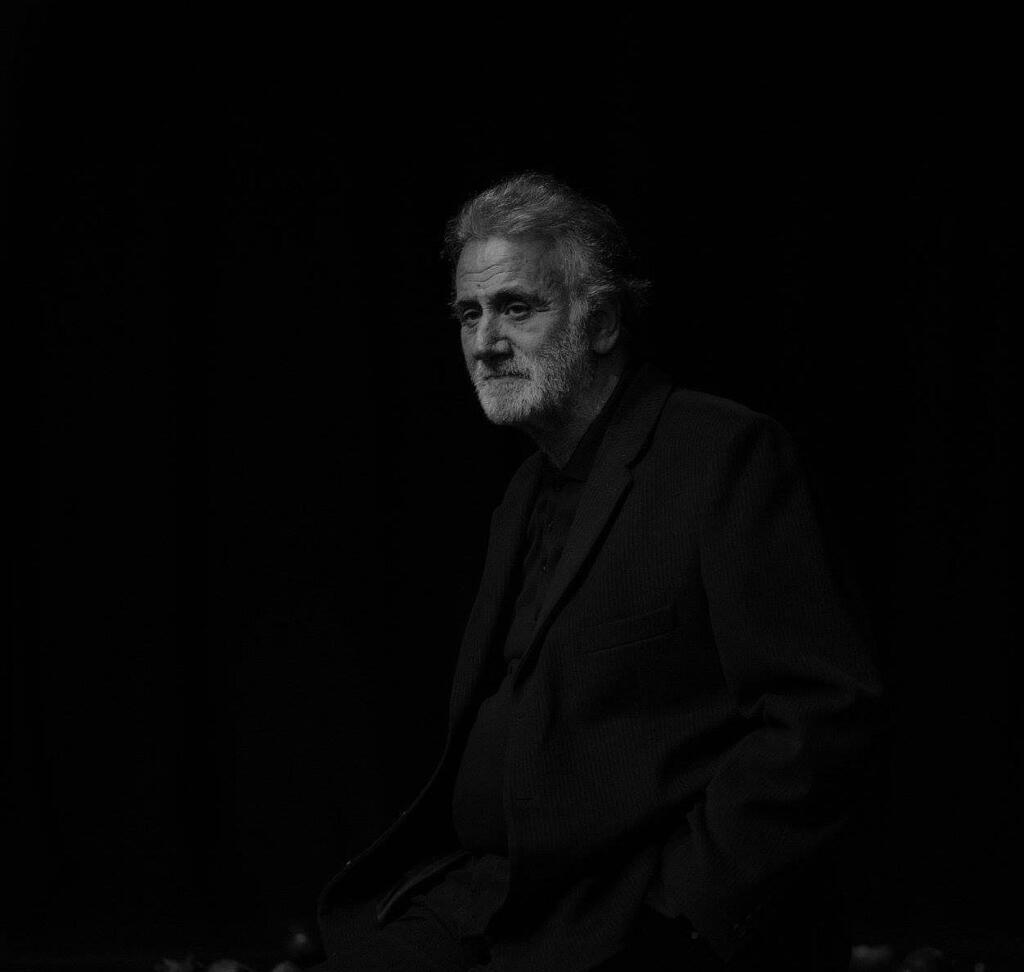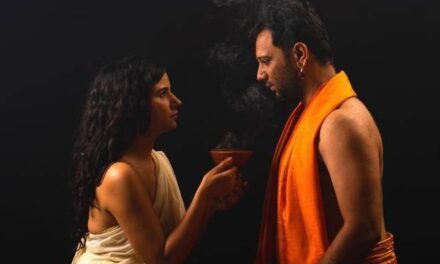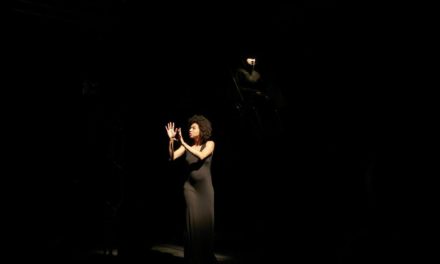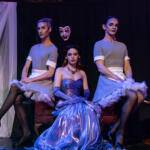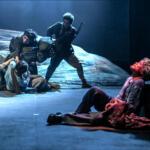An Interview with Kostas Kapodistrias – Theatre actor and director, theatre manager/founder of Theatro Tsi Zakithos, Zakynthos, Greece
One of the most authentic, inspiring and human great acting personalities in contemporary Greek theatres – He was born in Vanato, Zakynthos. Graduate of the Drama School of Vassilis Ritsos.
He has acted and directed the works: Comedy of the pseudo-doctors by Savoya Rousmeli, Paper Player by M. Chourmouzis, Hassis by D. Gouzelis, La Mosqueta of Roujante, Georges Dandin by Molière, Little Prince of Antoine du Saint-Exupéry, Mandragoras of N. Machiavelli, Can’t Pay? Won’t Pay! by Dario Fo, A Midsummer Night’s Dream by William Shakespeare, Barber of Seville by Beaumarchais, The Abduction of Princess Aiora by Paschalis Tsarouchas, Eugena of Montseleze, New House by Goldoni, Zampelaki by D. Roma, Beautiful and only Zakynthos captures me by D. Giatras and Costas Kapodistrias, Golfo the lover of the shepherdess and other stories, Mythythythythy, texts from the collection of the Brothers of the Sisters Stories of Mercy, songs by Berchtes and poems of Brecht, “Three Stories” in Three Epochries by Kabanelis, “Antigone” of Sofoklis by B. Brecht. He participates as a coordinator in folk theatrical groups of Zakynthos.
In this way, he deals with the research of the Zakynthian Folk Theatre (Omilies), as well as the writing through a group process of contemporary texts of the genre.
In recent years, he has been working with Stathis Piskopos on the performance of classical plays of ancient drama and the Renaissance in the perception of Zakynthian folk theatre. Thus, he has directed Aristophanes’ Lysistrata, the Doctor with sheepfold by Molière and the Servant of two masters by Goldoni in an adaptation of Stathis Piskopos.
Ivanka Apostolova Baskar: What was the reason for establishing a theater on the Ionian island Zakynthos where you live?
Kostas Kapodistrias: Zakynthos is an island that has a great theatrical tradition. Due to its geographical location, as well as the general historical and social conditions, it experienced the spirit of the Renaissance at all levels. In 1628 we had one of the first social revolutions in Europe. The REMBELIO OF POPOLARI. At the same time, there was great artistic creation. In 1646 we had the first known work in Zakynthian idiom. It is the Eugena by Theodoros Montseleze, a religious drama, in fifteen-syllable verse, which was the starting point for a great theatrical course with writings and performances of many works by famous creators. Apart from the renowned scholar’s creation, in Zakynthos, developed a special kind of popular theater, by anonymous poets, again in fifteen-syllable verse, played in the streets during the carnival period. This kind, which survives to this day, is called “omilies” and has been influenced by the commedia dell’arte, but also by the literary comedy. Based on this whole context in 1982, we collaborated with some young people, then, actors who were looking for ways to bring our work into contact with the popular public, and we founded the THEATRO TSI ZAKYTHOS in order to study the Zakynthian traditional popular theater and parallel forms of expression from the international drama to form our own language of communication. In our research at the time, the aesthetics of popular theatre with conventional forms of expression (e.g. speech in fifteen-syllable verse) helped us to create performances that aimed at the critical thinking of our viewers and represented our ideological approach to theatre. Apart from this part, which we could call the experimental stage, we also operate a purely professional repertoire stage with works that express us, with which we give performances in Zakynthos, Greece and abroad.
IAB: How do you create and finance the domestic/national part of the theater repertoire?
KK: There is no stable funding. From time to time we have received money from the Ministry of Culture and various public bodies, but never enough to do our job with relative ease. These mainly concern performances of a wider repertoire that operate on the terms of the theatrical market, but without the characteristics of commercial theatre. These are usually entered by a ticket and some sponsors.
IAB: How do you create and finance the international part of the theater repertoire?
KK: Through our participation in cooperation networks subsidized by European Union programs, such as Rafael, Creative Europe, Interreg, and Leader. Here we should note that European programs may help our operation to some extent, but they cannot ensure us a continuous and stable course. More generally, for a group that does not want to walk according to the laws of the free market that want the artistic creation of a commodity for sale, the conditions are very difficult.
IAB: How many people – actors/actresses and theatre-stage workers are employed or engaged in the theater?
KK: On average from 10 to 15 people when we have performances.
IAB: What does Ionian theater culture mean?
KK: The Ionian Islands since 1689, when Crete was occupied by the Ottoman Empire, were the eastern border of European civilization. They experienced all the developments of the Renaissance spirit on a historical, philosophical, social and artistic level. Corfu in 1386, Zakynthos in 1485, or Cephalonia in 1500 and Ithaca in 1503, were either voluntarily integrated or conquered by the Venetians who stayed until 1797. Their culture is a part of the wider Renaissance culture that developed in Venice and its possessions. Of course, each region has its own special characteristics that resulted from the distinct function of each place. For example, in Zakynthos where we work, artistic creation is strongly influenced by the conflicts between nobles and “popolari” (rebels from the popular social strata) that began in 1628 and last until today in different forms. Based on this perspective, poetry, music, and theater have been written, have been imprinted in the visual arts, and of course are the dominant feature of popular culture. Spearheaded by popular theater and the unique kind we find in Zakynthos, omilies.
IAB: What is an Ionian theater audience and how did you build it?
KK: The public of the Ionian Islands was built through the five centuries of tradition of the region. We simply act as a catalyst that brings it to the surface by adding our own glance. Despite the leveling that the globalized environment has brought, where there is a collective memory, there is also a need for functions that have depth and step on roots. We study these roots with absolute respect and build our artistic proposals on it.
IAB: Which theatre performance – play in the history of your theater is anthological and lasts the longest in your repertoire?
KK: Hassis by Dimitris Gouzelis who was written in Zakynthos in 1792. Gouzelis was a Zakynthian aristocrat who followed the ideas of enlightenment and was against his own class. In 1797, with the advent of the French Republicans, he pioneered the burning of the Golden Book of the Nobles. In Hassis he satirizes the petty bourgeois who want to become nobles instead of revolting and taking power from them.
IAB: You are one of the best and most charismatic theater actors in contemporary Greece, but you avoid acting in a movie or TV series? Why did you decide to focus only on a theater career and what does it give you and what does it take away from you?
KK: Thank you for the recognition, although usually in the environment I move we operate with other weights and measures. It is a fact that I work more in the Theatre. Probably due to circumstances I would say. Cinema is an art that I fully respect and when I have the opportunity I participate. Television has exhausting rhythms that do not allow you to spend a lot of time in the theater and even outside the center, as I usually work.
IAB: What does it mean to make a living from acting in today’s Greece?
KK: Unfortunately, the same exists in all countries where there is a free economy. Constant search for work. Every end of the season the vast majority of actors are looking for work. Few have the leeway to make choices.
IAB: With every political change in Greece, the conditions for the existence of theaters and performing arts also change, what follows after the last elections in the country?
KK: In any society where cultural works are considered products for sale and not goods for the formation of citizens, political changes do not have substantial differences. It just changes the shift of the faces. Neo-liberalism, which is imposed centrally through European mechanisms, also plays a dominant role here.
IAB: Is it possible for the theater to survive only from the sale of tickets for performances and from the performance of educational workshops for children and young people – future actors, directors …?
KK: Theater is not a one-dimensional concept. It has many expressions. Of those aimed at critical thinking of the viewer without the digestible recipes of commercialism, it is not possible to survive the sale of tickets.
IAB: Is the sustainability of art and culture – in this case, dramatic theaters and performing arts – is an illusion, a utopia, or is there a commercial perspective without disturbing the craft and the artistic in the theatre creating processes and results?
KK: In the past, there were good performances that cut tickets. In large urban centers, there are still some such jobs with quality criteria that they have an audience to attend. Of course, without some financial support, they cannot stand on their own. Those that survive are the commercial ones that follow the recipes of the star system with the known results.
IAB: You are an ideologically determined communist? What does it mean to be a communist in this brutal neo-liberal feudal-capitalist contemporary age in a very deep crisis?
KK: Fight for a better world. Bertolt Brecht has said it all about theatre, no matter how hard they try to bury it.
IAB: From the perspective of your long important professional stage experience, and witnessing and experiencing many changes locally and globally, in the world; what do you foresee – what is the future of your own theater house and the art of theatre at home (on the Balkans) and in the world?
KK: Theatre is an ancient art. It survived very difficult times and situations. The same will happen now. It is a social need and as such it overcomes many contradictions. For the Balkans, where it is, the region that first appeared can be a strong link and contribute to the friendship of its inhabitants, which through such an approach can create strong bonds.
IAB: In the context of Open Balkans, you initiate the formation and establishment of a Balkan network of theaters – theatres based in R. North Macedonia, Greece, Albania, Kosovo, Serbia, Bosnia and Herzegovina, Bulgaria – EU and non-EU Balkan countries? Why? What makes this initiative so important? And how we should start forming the network?
KK: The experience of our work with such networks makes us believe that such actions are a one-way street. Only in this way will we go forward and justify our passage through this world. The Theatre, among many other things, for its contributors has an exceptional advantage. It requires stripping the soul and integrating it into a collective process. In this way it creates strong bonds and relationships of life. I don’t think I need to say more.
IAB: Thank you very much dear Kostas.
(Skopje/Zakynthos, 2024)
This post was written by the author in their personal capacity.The opinions expressed in this article are the author’s own and do not reflect the view of The Theatre Times, their staff or collaborators.
This post was written by Ivanka Apostolova Baskar.
The views expressed here belong to the author and do not necessarily reflect our views and opinions.

